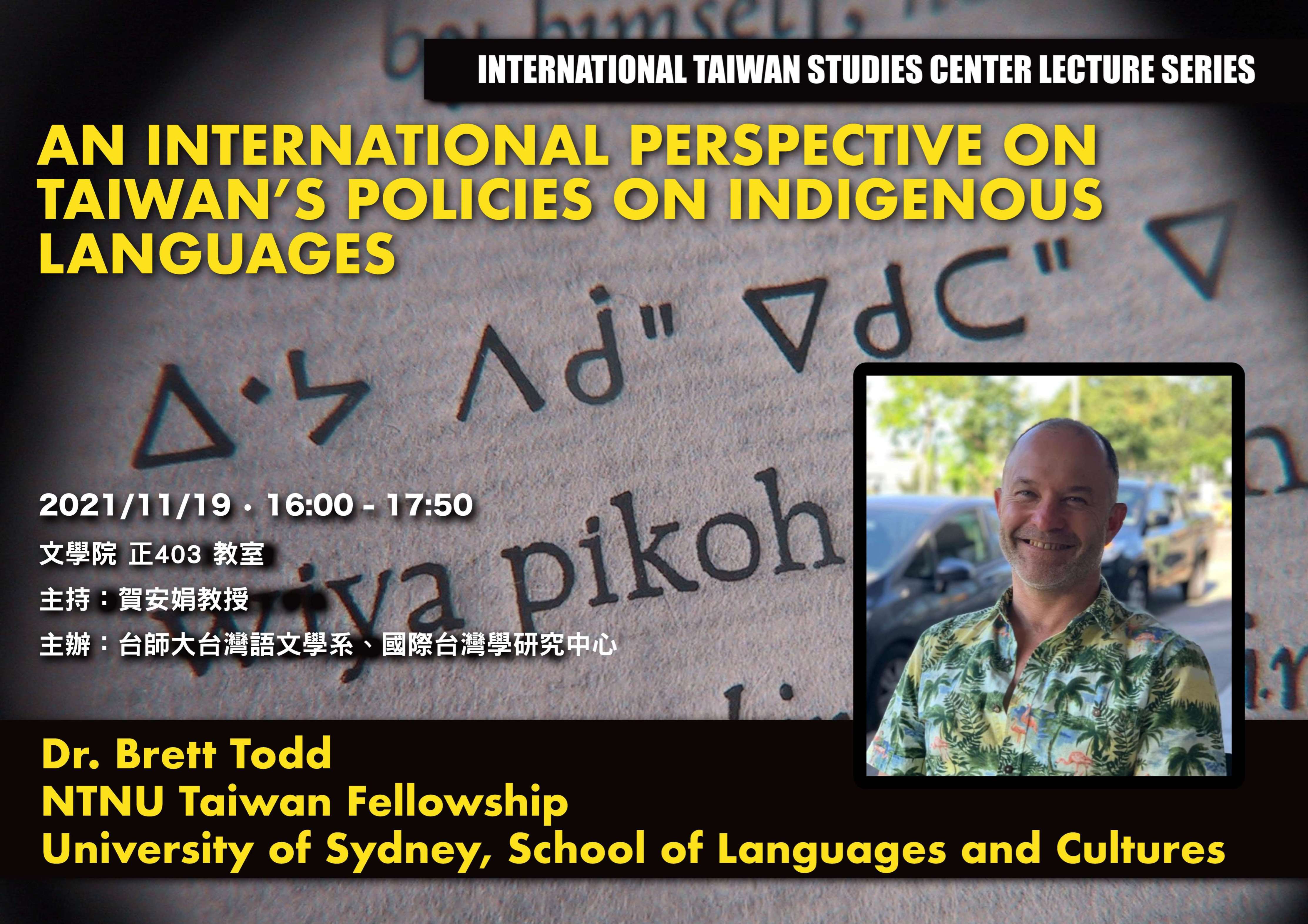國際台灣學研究中心國際學者講座
International Taiwan Studies Center: Lecture
講者:Dr. Brett Todd (School of Languages and Culture, University of Sydney, Australia)
講題:An International Perspective on Taiwan’s Policies on Indigenous Languages
時間:2021年11月19日(五)16:00 – 17:50
地點:台師大文學院 正403教室
主持:Ann Heylen 賀安娟教授(台師大台研中心執行長)
BIOGRAPHY
Dr Brett Todd is a visiting scholar at NTNU, holding a Taiwan Fellowship from the Ministry of Foreign Affairs. His current research examines the development and implementation of laws relating to the languages of Aboriginal peoples in Taiwan. His PhD thesis was on Colombian policies for the protection of Indigenous and creole languages, and he has also studied language policies and institutions in Mexico, Wales, Ireland, Scotland, Hawai’i, New Zealand and Australia for a forthcoming book.
Brett has degrees from the University of Sydney, University of New South Wales (UNSW) and University of Technology Sydney (UTS). He has taught at all three of those institutions, including courses in International Relations, Spanish and Latin American Studies, and Global Governance, as well as the supervision and coordination of In-Country Study programs for students going to Spain, France, Colombia, Mexico, Costa Rica, Japan, Canada, Argentina, Chile and USA. Before entering academia, Dr Todd worked with law firms in London and Sydney and undertook internships with UNHCR (United Nations High Commissioner for Refugees) in Geneva and with CELS (Centre for Legal and Social Studies), a human rights NGO in Buenos Aires, and also had periods of work or study in Japan, Canada and Chile.
ABSTRACT
For Indigenous peoples around the world, one of the consequences of colonization has been a linguistic transformation, whereby the language of the colonizers has replaced the traditional language for purposes of community life, particularly among younger generations. Elders have voiced their concern and Indigenous organizations have called for governments to reverse long-standing policies that excluded their languages from education, administration and other public domains. In recent decades, those demands appear to have been heeded in some places, resulting in adjustments to educational policies and the passage of legislation, as well as increased attention at the international level. In 2017 Taiwan joined the ranks of countries in Oceania and the Americas that have enacted laws to recognize, protect and promote Indigenous languages. Taking note of differences in the various national contexts, my lecture assess how Taiwan compares with those countries in terms of recognition of language rights, inclusion in education systems, the extent of involvement by Indigenous community members, funding commitments, institutional arrangements, and other aspects that help or hinder the implementation of the legislative promises.
